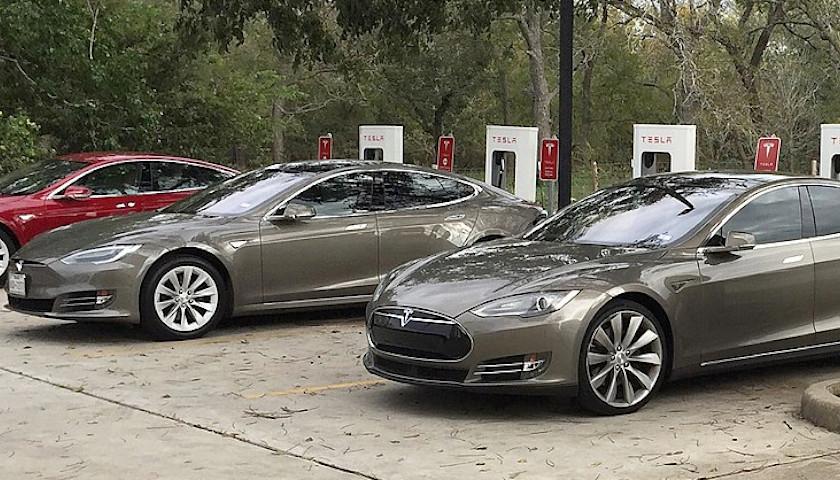by Scott McClallen
A group called on the Democrat-dominated Michigan Legislature to boost electric vehicle incentives so the state can reach 2 million registered statewide by 2030.
Illinois leads the Midwest race to register EVs with nearly 80,000 EVs, while Minnesota has 41,417 and Michigan has 34,380. For Michigan to reach its EV goal, it must register 280,803 EVs each year until mid-2030, which would require registering 23,400 EVs every month for seven years.
The Clean Cars 2030 coalition called for Michigan to offer more EV incentives, citing a study from the American Council for an Energy-Efficient Economy that ranked Michigan 26th nationwide for EV incentives.
“While Michigan has been making important strides in preparing for and encouraging the EV transition, particularly in attracting new battery and EV manufacturing investments, it has fallen behind other states in policies that help more Michiganders get behind the wheel of an electric vehicle,” Ecology Center climate and energy program director Charles Griffith said in a statement. “If Michigan wants to be a true leader on electric vehicles and achieve its climate goals, policymakers must step up their game to advance policies and programs that improve access to EVs for all Michiganders.”
ACEEE’s 2023 State Transportation Electrification Scorecard ranked Michigan 26th overall with 23.5 points out of 100.
This year, Michigan funded $125 million for clean and electric school buses, $5 million for EV charging stations along Lake Michigan’s coastline, and $1 million to begin transitioning the state’s vehicle fleet to EVs.
“Michigan received zero points related to equity-focused policies and should dedicate funding to underserved communities to ensure everyone benefits from the transition to electric vehicles,” ACEEE report author Peter Huether said in a statement.
Michigan has no state-level EV rebate program. Whitmer has proposed a $2,500 tax credit for those who buy EVs and vehicle chargers.
“The transportation sector is the largest contributor to greenhouse gas emissions — and cars and trucks account for about 60% of the total for the sector,” MEVA co-founder Amy Rogge said in a statement. “This is why it’s so important to focus on a rapid and just transition to all-electric vehicles for the everyday commute. Every year, it’s becoming easier to buy and drive an EV due to lower-priced new EVs coming into the market, more used EV purchases, and a vastly increasing number of charging stations across our state.”
– – –
Scott McClallen is a staff writer covering Michigan and Minnesota for The Center Square. A graduate of Hillsdale College, his work has appeared on Forbes.com and FEE.org. Previously, he worked as a financial analyst at Pepsi. In 2021, he published a book on technology and privacy. He co-hosts the weekly Michigan in Focus podcast.
Photo “Tesla Cars Charging” by Ed Uthman. CC BY-SA 4.0.





